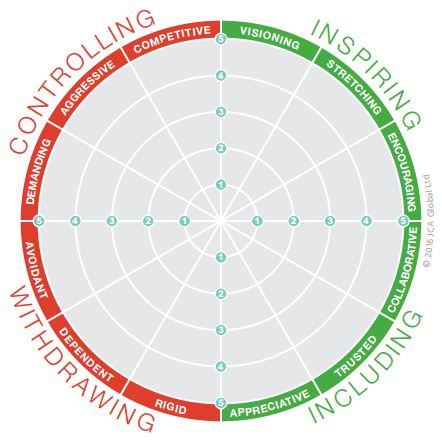Tap into the emotion of teams for more effective business results
Neuroscience shows that uncertainty and increased stress can shut down the logical part of our minds. This brings immense challenges to work and leadership. Tap into the emotion of teams for more effective business results.
The reasons I built the Just Being course at Jumo was for this exact reason. Tap into the Emotion of Teams for more effective business results can only be done with an effective emotional intelligence training course. I saw this article posted here and thought I would share.
Employee Engagement is the number one HR Leadership priority for 2017 (_Deloitte’s_ 2016 _Human Capital_ Trends report) and with Brexit on the horizon and the policies promised by President Trump, we are entering a period of uncertainty for many business leaders.
Neuroscience has proven that uncertainty and increased stress can shut down the logical part of our minds as we focus on survival. This brings immense challenges to the world of work and leadership.
Research from Gallup shows that employees in the 20- 36 year age group are the least engaged generation in the workplace to date, with many changing jobs and workers actively looking for new roles. This signals a bumpy ride for management teams in retaining good people.
The study highlights how millennials are pushing organsiations to reinvent how they lead and manage, highlighting what 21st century workers seek from employment today. The underlying principles for driving engagement among these millennials lie in the climate that a leader has created in the organisation. Indeed this may be true for all workers. As the title of the famous Harvard Business Review article stated, “Why should anyone be led by you!”
Research has shown that leadership climate is a known predicter of employee engagement and empowerment, directly relating to an organisation’s financial performance. Employees are over four times more likely to be engaged working in an emotionally intelligent leadership climate.
How does it feel to work around here – am I encouraged and inspired to stretch myself to my full potential?
The climate of any organisation is greatly influenced by the Emotional Intelligence of its leaders. Emotional Intelligence and the ability to lead people through a volatile and complex working world are seen as the greatest competitive advance for the 21st century.
A six year longitudinal study of 167 high-tech start-ups in Silicon Valley with different management and leadership styles highlighted that those who had the least chance of business failure and who achieved sustainable growth and investment funding adopted a commitment model of leadership. These organisations put a focus on their employees, created a common purpose, provided meaningful work and developed collaboration.
Key Questions leaders should ask themselves
- What is my mindset? Am I creating a mindful/thriving climate that builds long term success
- How am I feeling? How self-aware am I of my feelings and those around me?
- How do I choose to behave – do I take time out to reflect on situations and prepare for key conversations and meetings – what is my objective , what fingerprint do I want to leave.

Measuring Climate** The Leadership Climate indicator model (JCAglobal) measures 12 key leadership behaviours that demonstrate the prevalence of 4 leadership styles – Inspiring, Including, Controlling and Withdrawing leadership. It explores how the tone set by the organisations leaders is felt throughout the company and measures the impact this is having on perfomance, well-being and innovation.
What can today’s leaders learn from these studies?
At the recent Talent Summit event many common themes were coming through from the significant line up of Senior HR, L&D and Business leaders including keynote speaker Daniel Pink
- Build Self-awareness – Leaders who are aware of their own behaviours and those of their team are closer to the reality of what is really going on in the business. Be aware of the barriers for your team. The single biggest motivator for an employee is to make progress in meaningful work.
- Ensure all employees are clear on the Purpose of the organisation – Why do we exist? Why does this organisation matter?
- Provide Regular Feedback – encourage an environment where feedback is seen as development and an opportunity to reduce blindspots and stretch.
- Build Trust – Internally with employees, team members and externally with customers and suppliers. Actively build and develop relationships.
- Create an atmosphere of openness – Make it safe to challenge and offer alternative ideas.
- Stretch and Empower individuals – don’t micromanage – Encourage responsibility – give them autonomy.
- Value and appreciate others – Celebrate successes and recognise a job well done.
I was fortunate enough to have started Tai Chi a moving meditation at a very early age. Practising Tai Chi for over 25 years has allowed me to build a solid foundation to support the most important aspect of EQ development, which is attention training.
If you are interested in supporting yourself or helping the teams you manage, the links below can help you learn more about EQ training.
- What is EQ?
- Emotional Intelligence Training Course
- Learn to meditate with the Just6 App
- Meditation and the Science
- 7 reasons that emotional intelligence is quickly becoming one of the top sought job skills
- The secret to a high salary Emotional intelligence
- How to bring mindfulness into your employee wellness program
- Google ’Search Inside Yourself’



